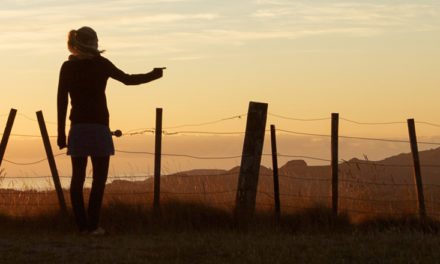Patron Providence
Tena tātou katoa e te iwi mīhana… (Greetings to all the people in mission),
This month’s whakataukī (proverb) is: “Tohaina ō painga ki te ao.” (share your benefits with the world). This is a call to spread widely all the good things that we have received, whether by genetics, privilege of upbringing, or as a return on the investment of our time, talents, and treasures. Doesn’t that sound positively biblical?
There is much that could be said about generosity, but if you are involved in missions you will already appreciate the fruit of a being a generous person—yielding social, spiritual, psychological, and physical benefits. Proverbs 11:25 notes the reciprocal benefits of generosity when the sage declares, “The generous will prosper; those who refresh others will themselves be refreshed” (NLT). Although, the KJV is somewhat more colourful: “The liberal soul shall be made fat: and he that watereth shall be watered also himself.” Liberal/generous/open/free giving is a sign of prosperity, but it is not necessarily contingent on an abundance of existing wealth. Rather, it reveals confidence in God to provide. The generous do not have a scarcity mentality. They are secure in their faith.
Throughout Scripture generous people are held up as examples of great piety. Whereas the rich, who withhold their wealth, are condemned. The early Church was marked by their generosity—a prophetic sign of the Kingdom come and coming. “Come live, eat, drink at no cost” (cf. Isaiah 55:1-3). Furthermore, the Apostles understood that members of Christ’s diverse body brought value in ways different from the economic systems of this world (aka Mammon). Everyone’s contribution matters and, when shared liberally, a form of what Professor Viv Grigg calls, “Cooperative Economics” starts to emerge, for the benefit of all. The Kingdom of God is marked by a mutual, unreserved, sharing.
Individualistic industrialisation has developed in us a sense of self righteous self sufficiency at the expense of communal responsibility.
The modern missionary movement was built on this understanding of generosity, but not as we currently know it. Over the past hundred years or so we have lost our appreciation for patronage. The patron has been replaced by the donor. Individualistic industrialisation has developed in us a sense of self righteous self sufficiency at the expense of communal responsibility. Largely thanks to the wage-earning employee paradigm and private ownership, we are now thoroughly indoctrinated into the economics of private ownership—my/mine. I learned this early from my mum who would complain about my late step-father’s belief in “what’s yours is ours, and what’s mine is my own.” (Fun times)
In contrast, Victorian-era home charities and foreign missions were made possible because of wealthy benefactors, such as members of the beer brewing Guinness and Buxton families. They were not just donors, they had a deep and enduring relationship with their… beneficiaries (and it is telling that this has become a dirty word these days). Patronage, however, long precedes the Victorian model. It is an honourable ancient practice, only recently treated with disdain. Patron-client relationships (at best) were mutually edifying. Patrons would support all manner of artists, social services (usually provided by religious orders), politicians and even military personnel. The patron would view it as a civil service and gain social credit from the success of their protégé. Also, patronage should not be confused with paternalism or the suggestion of a superior/inferior relationship, although it would be easy to slip into that if the protégé becomes entirely dependent on the providence of the patron. Should the patron want the protégé to do something, it would be challenging for the protégé to object. They would have much to lose should supply be cut off. So there is a power balance to be finely tuned to avoid abuse.
The imposition of democratic ideals can too easily be a colonising device.
For all the complexity that exists in geopolitics, one thing that Western politicians and commentators seem to fail to grasp is the power of patronage when it comes to a strong nation supporting a weaker nation. The idea of vassal states has apparently been long forgotten in the West’s short memory. Neo-liberal geopolitical ideology demands that each nation state be ‘free’ to stand on its own, with little more than trade and an international bank to help it along its way. But most of the world is not Western and the imposition of democratic ideals can too easily be a colonising device.
When China’s relationship with Solomon Islands created a furore in New Zealand, Australia, and the USA recently, I perceived a significant intercultural blind spot that China is arguably uniquely positioned to exploit—the patron/client relationship. As patron, China could pour huge resources into would-be client states, long before any talk of reciprocation (or so it seems). Now, we should be under no illusion that pay-back will eventually come due, but we must not think of it in monetary terms. Collectivist cultures do not naturally work contractually. Payback in cash with interest is often not expected. Therefore, a relationship can be very alluring, especially if the cost is perceived to be minimal (e.g. a bit of land for a port). Western transactional expectations can be so inadequate when trying to build similar alliances.
In missions we must take care to avoid swinging the pendulum too far when seeking to “help without hurting”. There is a valid place for liberal sharing where mutual benefit is prioritised so that we all #stayonmission.
Arohanui ki a koutou e haere ana ki te ao (love to you all as you go into the world),
Jay






